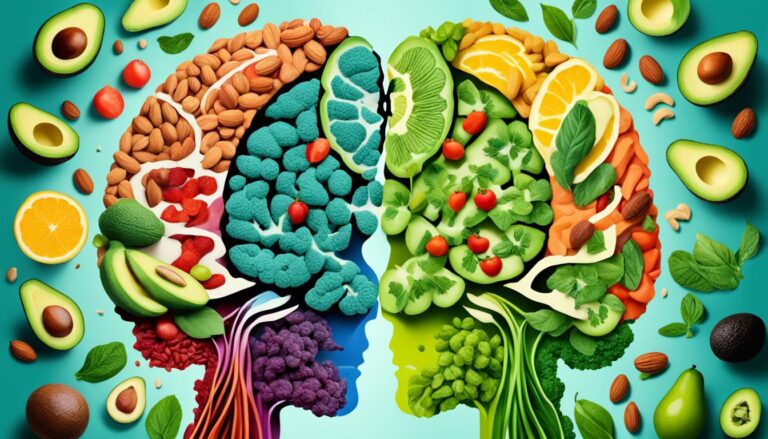Are protein supplements really worth the hype? Can they truly help you achieve your fitness and health goals? Let’s uncover the truth about protein supplements and explore their benefits and different types.
Protein supplements have become increasingly popular among fitness enthusiasts and athletes who want to optimize their performance and reach their goals. But do you know what sets them apart and how they can support your overall well-being?
In this section, we will delve into the essential facts about protein supplements that everyone should know. From the benefits they offer to the various types available, we’ll arm you with the knowledge to make informed decisions about incorporating protein supplements into your lifestyle.
Key Takeaways:
- Protein supplements can support your health and fitness goals.
- Understanding the benefits and different types of protein supplements is crucial.
- Make informed decisions by exploring the facts and options available.
- Stay tuned to discover how protein supplements can enhance your overall well-being.
Unpacking the Science Behind Protein Supplements
Amino acids are the fundamental building blocks of protein and play a critical role in muscle synthesis and recovery. Understanding the science behind these crucial compounds can help shed light on how protein supplements can enhance muscle growth and repair.
Understanding Amino Acids and Muscle Synthesis
Amino acids are organic compounds that combine to form proteins. There are 20 common amino acids, each with its unique structure and function in the body.
When we consume protein-rich foods or protein supplements, our bodies break down these proteins into individual amino acids, which are then absorbed into the bloodstream.
During muscle synthesis, amino acids are utilized to repair and build new muscle tissue. Leucine, isoleucine, and valine, collectively known as branched-chain amino acids (BCAAs), are particularly important for muscle growth and recovery.
These essential amino acids stimulate muscle protein synthesis and provide the necessary fuel to build and repair muscles.

The Role of BCAAs in Exercise Recovery
When we engage in intense physical exercise, our muscles undergo stress and damage. This is where BCAAs come into play. By consuming protein supplements that contain high levels of BCAAs, such as whey protein, individuals can promote faster muscle recovery, reduce muscle soreness, and enhance muscle repair.
The consumption of BCAAs after exercise has been shown to stimulate muscle protein synthesis, leading to increased muscle growth over time. BCAAs also help reduce muscle soreness, allowing individuals to recover faster and perform better in subsequent workouts.
How the Body Metabolizes Protein
The process of protein metabolism begins with the digestion of protein in the gastrointestinal tract. Enzymes break down protein into individual amino acids or small peptide chains, which are then transported into the bloodstream.
Once in the bloodstream, amino acids are transported to various tissues throughout the body, including muscle tissue, where they play a vital role in muscle growth and repair. Adequate protein intake and regular consumption of protein supplements ensure a steady supply of amino acids for muscle synthesis.
It’s important to note that the timing and dosage of protein consumption are crucial for optimizing protein metabolism. Consuming protein supplements shortly before or after exercise can provide the necessary amino acids to support muscle recovery and maximize the benefits of protein synthesis.
What You Need to Know About Protein Supplements
In the vast sea of protein supplements available on the market, it can be overwhelming to navigate and choose the right one for your individual needs and goals. To make informed decisions and ensure you’re getting the most out of your protein supplement, there are a few key factors to consider.
Dosage: Determining the appropriate protein supplement dosage is crucial for achieving optimal results. The amount of protein you need depends on factors such as your body weight, activity level, and fitness goals.
Consulting with a nutrition professional or fitness expert can help you determine the ideal dosage that suits your specific requirements.
Type: Choosing the right type of protein supplement is essential to maximize its benefits. There are various types of protein available, including whey, casein, soy, pea, and hemp. Each type has unique characteristics and can offer specific advantages.
For example, whey protein is popular for its fast absorption and muscle-building properties, while casein protein is known for its slow digestion, providing sustained release of amino acids. Consider your dietary preferences and goals when selecting a protein supplement.
Quality and Purity: When choosing protein supplements, it’s vital to prioritize quality and purity. Look for products from reputable brands that undergo rigorous testing and quality control processes.
Reading product labels and checking for third-party certifications can help ensure that the supplement is free from contaminants and meets high-quality standards.
Safety: Safety is a paramount consideration when selecting protein supplements. Make sure to review any potential allergens or sensitivities associated with the chosen protein source.
Additionally, consult with your healthcare provider if you have any underlying medical conditions or concerns that may require personalized guidance.

By considering these factors, you can confidently choose a protein supplement that aligns with your specific needs and preferences, allowing you to effectively support your fitness and health goals.
Remember, finding the perfect protein supplement may require some trial and error, but with the right information and guidance, you’ll be well on your way to making the best choice for your body.
Comparing Various Types of Protein Supplements
When it comes to protein supplements, there are various types available on the market. In this section, we will compare three popular options: whey protein, casein protein, and plant-based proteins.
We will explore their digestion and absorption rates, nutritional value, sustainability, as well as the processing and purification methods used to produce them.
Whey vs. Casein: Digestion and Absorption
Whey protein and casein protein are derived from milk and offer unique characteristics. Whey protein is quickly digested and absorbed by the body, making it an excellent choice for post-workout supplementation when you need fast-acting protein for muscle recovery.
On the other hand, casein protein is digested more slowly, providing a sustained release of amino acids and making it suitable for pre-bedtime supplementation to support muscle growth throughout the night.
It’s important to note that whey and casein proteins have different amino acid profiles. Whey protein is rich in branched-chain amino acids (BCAAs), which are essential for muscle synthesis and recovery.
Casein protein, on the other hand, contains a high amount of the amino acid glutamine, which plays a crucial role in immune function and gut health.
Plant-Based Proteins: Nutritional Value and Sustainability
With the growing popularity of plant-based diets, plant-based protein supplements have become an attractive option for those following vegetarian or vegan lifestyles.
Plant-based proteins are derived from sources such as peas, hemp, rice, and soy, and they offer a wide range of essential amino acids.
In addition to their nutritional value, plant-based proteins also have environmental benefits. Plant-based protein sources have a lower carbon footprint compared to animal-derived proteins, making them a more sustainable choice for individuals concerned about the planet.
Hydrolysates and Concentrates: Processing and Purification
Protein supplements are available in various forms, including hydrolysates and concentrates. Hydrolysates are proteins that have been broken down into smaller peptides, making them easier to digest and absorb. They are often used in sports nutrition products due to their rapid absorption rates.
Protein concentrates, on the other hand, are less processed and contain a higher percentage of protein compared to other forms. They also retain other nutrients present in the protein source, making them a more wholesome option.
When it comes to processing and purification, quality control measures are crucial. Third-party testing ensures the purity and safety of protein supplements, providing consumers with confidence in the products they choose.

Decoding the Benefits of Protein Supplements
Protein supplements have become a go-to solution for individuals looking to elevate their health and fitness game. These supplements offer a myriad of advantages, making them an essential component of a well-rounded diet and exercise regimen.
Let’s delve into the benefits of protein supplements and explore how they can support various aspects of your health and fitness journey.

Support Muscle Growth and Repair
One of the most significant benefits of protein supplements is their ability to promote muscle growth and repair. These supplements are rich in amino acids, the building blocks of protein, which are crucial for muscle synthesis.
By providing your body with an adequate supply of amino acids, protein supplements can help enhance muscle recovery after intense workouts and stimulate muscle development, leading to improved strength and endurance.
Aid in Weight Management and Fat Loss
Protein supplements can also play a role in weight management and fat loss. Protein has a high satiety value, which means it keeps you feeling fuller for longer and reduces cravings.
By incorporating protein supplements into your diet, you can effectively curb hunger, control your appetite, and prevent overeating. Additionally, protein supplements can help preserve lean muscle mass during weight loss, ensuring that the weight you lose comes primarily from fat.
Enhance Athletic Performance
Athletes, both professional and recreational, can benefit from using protein supplements to enhance their athletic performance. Protein supplements provide the essential nutrients needed to optimize energy production, support muscle recovery, and maximize strength and power.
By incorporating protein shakes or snacks into pre- and post-workout routines, athletes can fuel their bodies effectively, reduce muscle soreness, and achieve peak performance.
Promote Satiety and Appetite Control
Protein supplements can be a valuable tool for promoting satiety and appetite control. When you consume protein, it stimulates the release of hormones that regulate hunger and fullness, keeping you satisfied for longer periods.
This can be particularly beneficial for individuals looking to manage their calorie intake and make healthier food choices throughout the day. By feeling more satisfied and in control of your appetite, you can avoid unnecessary snacking and maintain a balanced diet.
“I’ve personally experienced the benefits of protein supplements in my fitness journey. Not only did they help me build lean muscle, but they also kept my cravings in check and boosted my overall energy levels. Protein supplements truly are a game-changer!” – Sarah, Fitness Enthusiast
Incorporating protein supplements into your daily routine can yield remarkable results when it comes to achieving your health and fitness goals. Remember, it’s essential to combine protein supplements with a balanced diet and regular exercise for optimal outcomes. Consult with a healthcare professional or registered dietitian to determine the right protein supplement dosage and ensure it aligns with your individual needs and goals.
Comprehending the Risks and Side Effects
While protein supplements offer numerous benefits, it is essential to be aware of the potential risks and side effects associated with their usage. In this section, we will explore three key areas where caution and understanding are crucial: renal health, bone health, and cardiovascular concerns.
Renal Health and High-Protein Diets: Is There a Risk?
There has been some concern about the impact of high-protein diets on kidney health. However, current research suggests that individuals with normal kidney function are unlikely to experience any negative effects from consuming protein supplements or following a high-protein diet.
In fact, studies have shown that high-protein diets do not harm kidney function in healthy individuals.
Individuals with pre-existing kidney conditions should consult with their healthcare provider before making significant dietary changes. For those with compromised renal function, it may be necessary to moderate protein intake to prevent excessive strain on the kidneys.
However, there is no clear evidence indicating that protein supplementation alone poses a direct risk to kidney health.
Examining the Implications for Bone Health
Bone health is another area of concern when it comes to protein supplementation. Some studies have raised questions about the potential impact of high-protein diets on bone density and the risk of osteoporosis and fractures.
However, the existing evidence is inconclusive and varies depending on factors such as age, overall nutrient intake, and calcium balance.
It is important to note that protein is an essential component of bone tissue and plays a vital role in maintaining bone health. Moderate protein intake, coupled with adequate calcium and vitamin D levels, is generally believed to have a positive effect on bone health.
If you have concerns about how protein supplementation may affect your bones, it is advisable to consult with a healthcare professional for personalized guidance.
Cardiovascular Concerns: Understanding the Links
The relationship between high-protein diets, protein supplementation, and cardiovascular health has been a topic of discussion.
Some studies have suggested a potential association between high-protein diets and an increased risk of cardiovascular diseases such as hypertension, atherosclerosis, and heart disease. However, it is important to consider the context, as the impact of protein on cardiovascular health depends on various factors.
It appears that the source of protein and overall dietary patterns play a significant role in cardiovascular health. For example, plant-based protein sources, such as legumes and nuts, have been associated with a lower risk of heart disease.
Additionally, when incorporated into a balanced diet that focuses on whole foods and restricts saturated fats and processed foods, protein supplementation may not pose a significant risk to cardiovascular health.
As with any dietary consideration, it is essential to consult with a healthcare professional to evaluate the potential risks and benefits of protein supplementation, particularly if you have existing cardiovascular conditions or concerns.

Table: Potential Risks and Considerations of Protein Supplementation
| Risks/Considerations | Explanation |
|---|---|
| Kidney Health | Evidence suggests that protein supplementation is generally safe for individuals with normal kidney function. Those with pre-existing kidney conditions should seek guidance from healthcare providers. |
| Bone Health | The impact of protein supplementation on bone health is still debated. Overall, moderate protein intake, along with sufficient calcium and vitamin D, is believed to support bone health. Consulting a healthcare professional is advisable for personalized advice. |
| Cardiovascular Health | The relationship between high-protein diets, protein supplementation, and cardiovascular health is complex. The source of protein and overall dietary patterns may influence the risks. Consulting a healthcare professional is recommended, particularly for those with cardiovascular conditions or concerns. |
It is crucial to make informed decisions based on evidence, individual needs, and health conditions. Consult with healthcare professionals and registered dietitians to determine the most suitable approach to protein supplementation for your specific circumstances.
How to Integrate Protein Supplements Into Your Diet
Integrating protein supplements into your daily diet can be a beneficial strategy for optimizing your nutrition and fitness goals. However, it’s important to approach this process with careful consideration to ensure that you’re incorporating them effectively.
Here are some practical tips and recommendations to help you seamlessly integrate protein supplements into your meals and snacks:
- Timing: Determine the optimal timing for consuming protein supplements based on your individual goals and activity levels. For example, you may choose to have a protein shake within 30 minutes of completing your workout to support muscle recovery and growth.
- Dosage: Consult with a healthcare professional or a registered dietitian to determine the appropriate protein supplement dosage for your specific needs. Factors such as your body weight, activity level, and overall dietary protein intake should be taken into account.
- Meal Plans: Incorporate protein-rich recipes into your meal plans to ensure you’re getting a balanced and nutritious diet. Include protein sources such as lean meats, poultry, fish, eggs, dairy products, legumes, and plant-based proteins like tofu, tempeh, and seitan.
- Snacks: Use protein supplements as a quick and convenient snack option when you’re on the go. Protein bars, protein shakes, or protein cookies can provide a portable and satiating option to satisfy your hunger and maintain energy levels throughout the day.
Remember that protein supplements should complement a well-rounded diet that includes a variety of whole foods. They should not be used as a substitute for a balanced meal or a healthy lifestyle. Incorporating protein supplements strategically into your daily routine can help you meet your protein needs and support your fitness goals.
With the right approach, protein supplements can be a valuable tool to enhance your nutrition and optimize your overall health and performance.
The Impact of Protein Supplements on Athletic Performance
When it comes to optimizing athletic performance, protein supplements can be a game-changer for athletes and individuals engaged in resistance training. These supplements offer a range of benefits, including supporting muscle growth and development, enhancing strength and power, and optimizing performance during resistance training.
Incorporating protein supplements into your routine can provide the necessary fuel to help you reach your fitness goals. By providing the body with the building blocks it needs, protein supplements promote muscle repair and recovery, aiding in muscle growth and preventing muscle breakdown.
Building Muscle: Benefits for Resistance Training
Resistance training is a popular form of exercise that focuses on increasing muscle strength and endurance. Protein supplementation can enhance the effects of resistance training by providing additional protein that the body needs to repair and build new muscle tissue.
By consuming protein supplements, athletes and individuals engaging in resistance training can ensure that their muscles receive an adequate amount of protein to support growth and recovery. This can lead to increased muscle mass, improved strength and power, and enhanced athletic performance.
Protein Timing: Maximizing Muscle Repair Post-Workout
The timing of protein consumption is important for maximizing muscle repair and recovery after exercise. Consuming protein supplements within the post-workout “anabolic window” helps initiate the process of muscle protein synthesis, which is crucial for muscle recovery and growth.
Studies have shown that consuming protein supplements within 30 minutes to an hour after exercise can significantly enhance muscle protein synthesis. This ensures that the body has an adequate supply of protein to repair damaged muscle fibers and promote muscle growth.
Endurance Sports: Can Protein Supplements Offer an Edge?
While protein supplementation is commonly associated with strength and resistance training, endurance athletes can also benefit from incorporating protein supplements into their routine. Endurance sports, such as running, cycling, and swimming, place significant demands on the body, leading to muscle breakdown and fatigue.
Protein supplements can aid in muscle recovery and repair, allowing endurance athletes to train harder and recover more efficiently. Additionally, protein supplements can help endurance athletes maintain lean muscle mass, which is essential for performance and overall athletic endurance.
By providing the necessary amino acids, protein supplements support protein synthesis and aid in muscle recovery, helping endurance athletes push their limits and achieve their performance goals.
In conclusion, protein supplements have a profound impact on athletic performance, whether you are engaged in resistance training or endurance sports.
They provide the necessary nutrients to support muscle growth, enhance strength and power, and optimize athletic performance. By considering protein timing and incorporating protein supplements into your routine, you can maximize muscle repair and recovery, allowing you to crush your fitness goals and reach new levels of performance.
Conclusion
Protein supplements are like the ultimate wingman, helping you achieve your health and fitness goals with their supercharged benefits. Whether you’re aiming to build lean muscle, shed a few pounds, or enhance your athletic performance, these powerhouse supplements have got your back.
But wait, before you jump into a tub of protein powder like a kid in a candy store, it’s essential to approach supplementation with caution. Just like finding the right career match or swiping right on a dating app, choosing the ideal protein supplement requires some informed decision-making. It’s all about understanding your unique needs, goals, and potential risks.
So, as you embark on your protein-packed journey, keep in mind that knowledge is your secret weapon. Arm yourself with accurate information, consult with healthcare professionals, and remember to listen to your own body. After all, when it comes to unlocking the full potential of protein supplementation, a well-informed and personalized approach is the key to success.





